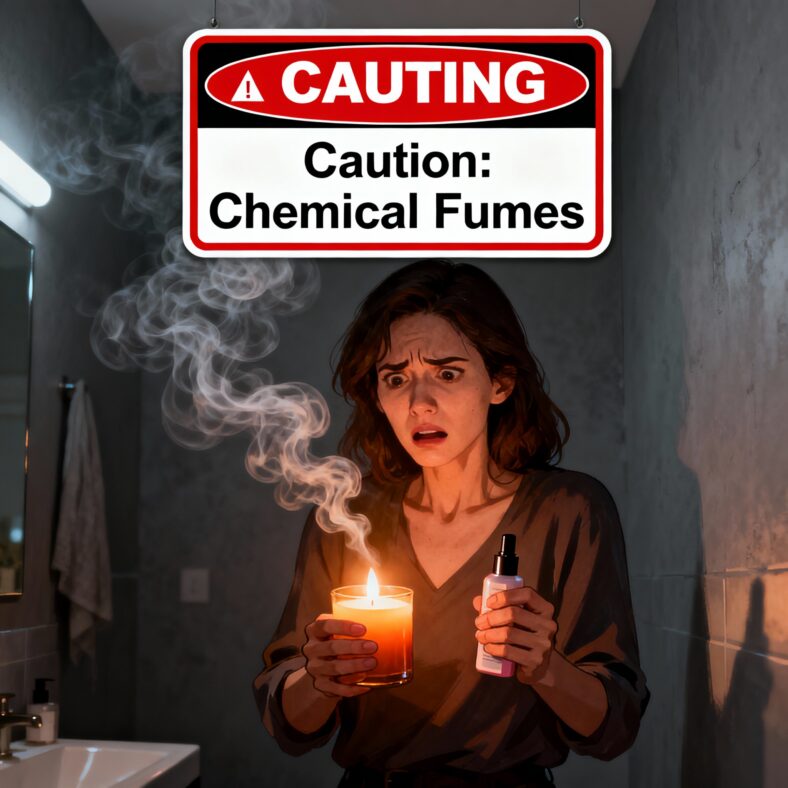Unless a product is labeled as using 100% natural oils, then it’s full of chemicals that are harmful, or even toxic to you and your family. The main culprit is paraben, which is a key component of most products that list ‘perfume’ in their ingredients.
Many of us seek out pleasant fragrances to make our homes and bodies feel welcoming—but as Dr. Yvonne Burkart explained in her recent interview, there may be hidden health risks lurking behind those inviting smells.
The Hidden Dangers in Everyday Products
Dr. Burkart, an environmental health expert, has spent years educating people about the unseen chemicals in household and beauty products. Many air fresheners, candles, and personal care items contain compounds like phthalates, formaldehyde, and synthetic musks—ingredients linked to allergies, hormone disruption, and even long-term chronic conditions.
Even products labeled “natural” can emit volatile organic compounds (VOCs) that accumulate indoors. Common culprits mentioned include:
-
Candles—especially scented, paraffin-based varieties
-
Deodorants and body sprays
-
Incense and air fresheners
What Does Science Say?
Environmental health studies have shown that repeated exposure to these chemicals can contribute to respiratory problems, asthma exacerbation, and neurological effects, particularly in children and sensitive populations. The Environmental Protection Agency (EPA) and Centers for Disease Control (CDC) warn about the accumulation of VOCs and indoor air pollutants.
Research continues to point out the risks: for example, a study published in Environmental Science & Technology found that fragranced consumer products are a major source of indoor air pollution in homes and offices. As Dr. Burkart urges, identifying and reducing toxins in your household isn’t just a trend—it’s a key step toward long-term health.
Simple Steps to Detoxify Your Space
Dr. Burkart recommends several practical actions for anyone concerned:
-
Choose genuinely unscented or eco-certified products whenever possible.
-
Ventilate rooms after using candles, incense, or cleaning agents.
-
Try baking soda or activated charcoal to neutralize odors safely.
-
Read ingredient labels and avoid unnecessary fragrance or “parfum.”
The Benefits of Change
Detoxifying your environment leads to less stress on your body—a fact supported by many public health organizations. You may notice a reduction in headaches, better skin health, and even improved mood and sleep once you start limiting your exposure to synthetic fragrances.
By making small changes today, you’re investing in a healthier, happier tomorrow—for yourself and those you care about.
If you want support or have questions about toxin-free living, join the conversation below!
Most Replayed Moment: Are Your Household And Beauty Products Secretly Toxic? Dr Yvonne Burkart


Leave a Reply
You must be logged in to post a comment.